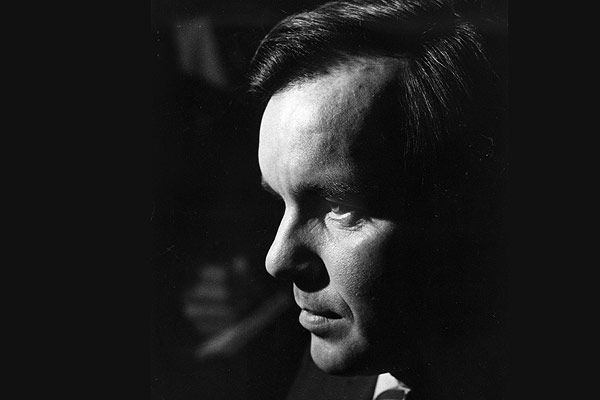Jan 24, 2011

Richard M. Daley in 1983
Related:
THE MAYOR’S BUCKET LIST »
Ten suggestions for how to use the remainder of his term
DALEY VS. DALEY »
We compare the reigns of father and son
THE MYSTERY OF MAYOR DALEY »
Our special report
When Mayor Daley finally cleans out his desk at City Hall, his successor will inherit a crippled CTA, a dismal job market, hemorrhaging public schools, and yet another Band-Aid budget of one-time revenues. Candidates fighting for this bounty will face off in a televised mayoral debate this week—only the second since Daley took office in 1989.
The rhetoric, however, is more likely to evoke Daley’s first run for mayor in 1983. Before he lost the primary to Harold Washington, a younger Daley—then a state’s attorney clad in gusto and more hair—derided incumbent candidate Jane Byrne in a series of network debates, criticizing her front-runner fundraising and the city’s financial mismanagement. Almost 30 years later, a cache of those historical audio clips from the University of Illinois at Chicago’s library suggest that if young Daley were running in 2011, he would have some strong opinions about Chicago’s challenges today.
EDUCATION
Then: After CPS had financial meltdown in 1979, a state agency took control of determining district policy and budget. In 1980 and 1983, teachers went on strike due to salary disputes.
Now: Although the city regained control of CPS in 1995, state funding problems persist. The district’s 2011 budget shows a deficit of $370 million, which does not include more than $236 million in late payments owed by the state last year.
Daley: “The state of Illinois has the primary responsibility for education, and we as legislative leaders and public officials, with the business community, must go down to Springfield and get a better share of the state income tax formula.”
CITY BUDGET
Then: Daley accused Mayor Byrne of using pension funds to pay bills and relying too heavily on one-time revenue streams to meet a deficit concealed by previous budgets.
Now: In December 2008, Daley leased Chicago’s 36,000 parking meters for 75 years to a private company to address budget shortfalls. The $1.157 billion deal earned the city only about half of the revenue that the meters themselves would have generated, according to the city’s inspector general. By the end of 2011, only $77 million of that money will remain in reserves.
Daley: "The mayor’s only answer to fiscal problems has been to mortgage the future.”
CTA
Then: Due to falling revenues in 1970s, CTA deficits had grown to $281.8 million by 1980.
Now: Despite fare hikes and fewer routes in 2010, CTA president Richard Rodriguez said his agency was still about $7 billion short of funds needed to bring the system into “a state of good repair” in 2011.
Daley: “What we have seen here is a broken promise to the passengers. The fares went up, services cut, and maintenance cut.”
CAMPAIGN SPENDING
Then: Mayor Byrne’s campaign cache was about $10 million by the end of the 1983 race, compared to Washington’s $1.1 million and Daley’s $2 million, according to news accounts.
Now: Disclosure reports filed with the Illinois State Board of Elections on January 20th show that Rahm Emanuel has raised $11.8 million, leading Gery Chico ($2.39 million), Carol Moseley Braun ($446,000), and Miguel del Valle ($150,000) in campaign fundraising. NOTE: An Illinois appellate court ruled on January 24th that Emanuel should not appear on the ballot because he does meet the residency requirement. Emanuel filed an emergency appeal with the Illinois Supreme Court.
Daley: “People are suspicious of the implications of a mayor who is the champion fundraiser of this nation.”
UNEMPLOYMENT
Then: Following a severe recession, the jobless rate in the Chicago metropolitan area reached 13.9 percent in January 1983.
Now: In 2009, unemployment in the region rose above ten percent to the highest since 1983. Today, it hovers at around nine percent, with more than 400,000 people out of work.
Daley: “It’s no game that 200,000 of our neighbors in Chicago are out of work or that men and women who are out of work or have sacrificed to build small businesses are going bankrupt every day. Our people have watched their taxes go up and their utility bills go up until even with a job life is more difficult.”
Photograph: Chicago Tribune; Audio Courtesy of Bob Crawford Audio Archive, University of Illinois at Chicago, Special Collections and University Archives


